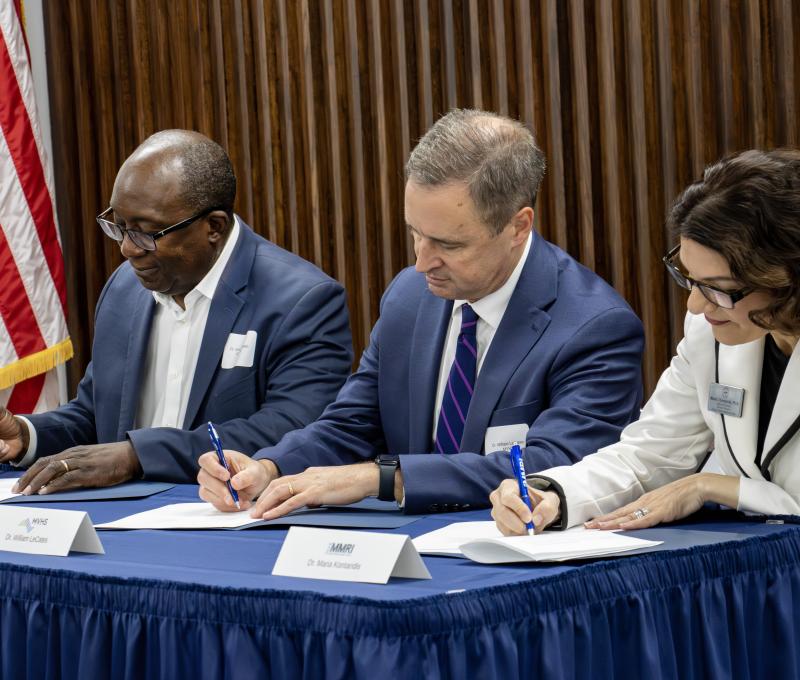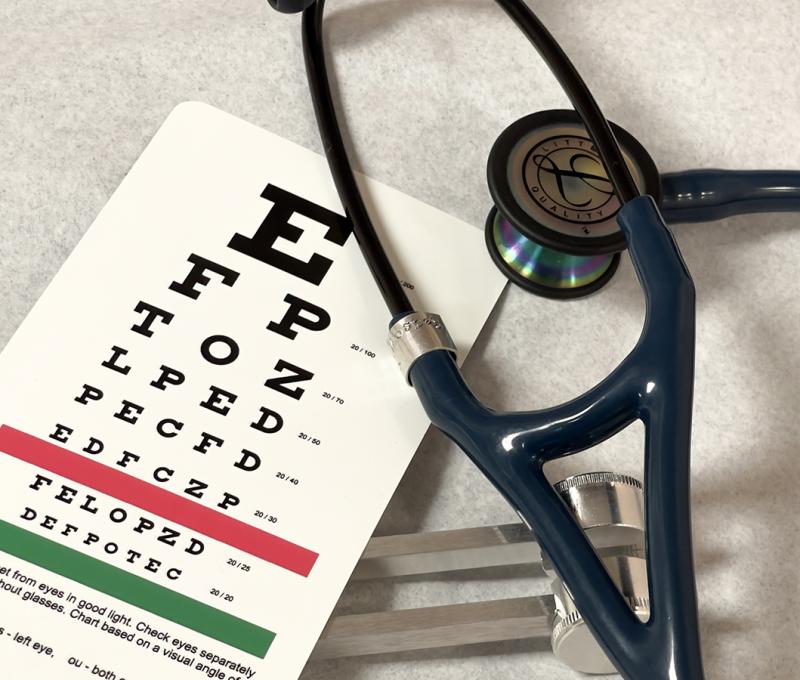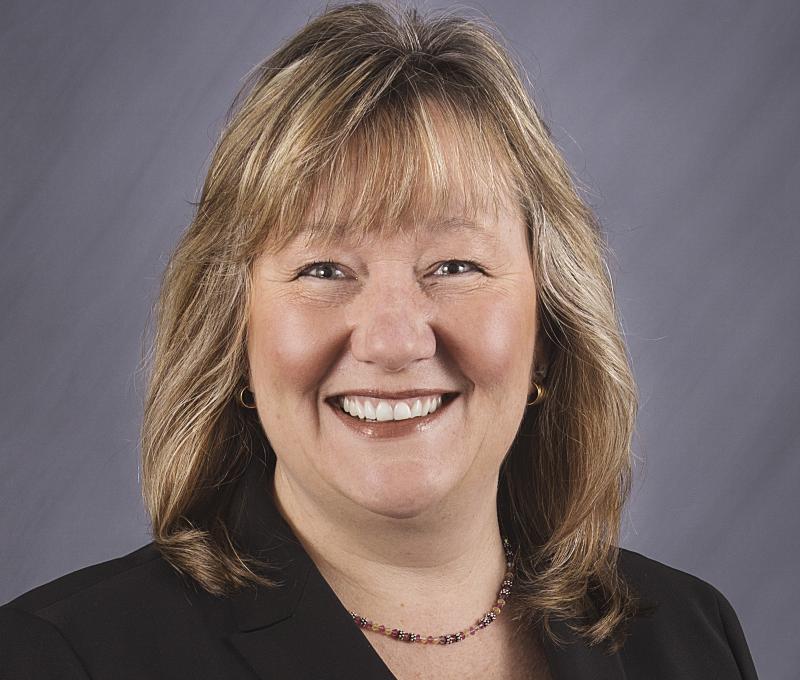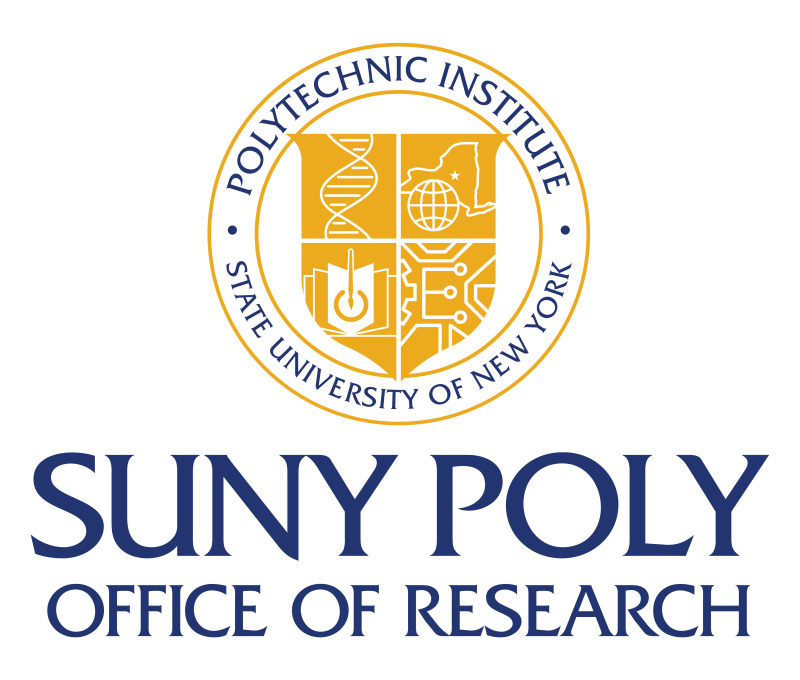SUNY Poly Student Named Among Winners of the SUNY Chancellor Distinguished PhD Graduate Dissertation Awards

For Immediate Release: Thursday, Jan. 19, 2023
Contact: Holly Liapis; Holly.Liapis@suny.edu; (518) 320-1311
Albany, NY – State University of New York Chancellor John B. King, Jr. today celebrated student innovation as he announced the winners of the Chancellor Distinguished PhD Graduate Dissertation Awards, which recognize work done across the 64-campus system to address some of society’s most pressing issues.
The Chancellor Distinguished PhD Graduate Dissertation Awards were created to recognize the very best PhD dissertations in the SUNY system. SUNY graduates about 1,200 PhD students each year from its doctoral-granting campuses, with fields of study ranging from agriculture, biology, physics, and social sciences to engineering and the fine arts. Competitions such as the Dissertation Awards bring attention to the critical work being undertaken by the next generation of future leaders and researchers.
First place was awarded to Dr. Arshad Arjunan Nair from the Atmospheric Sciences Research Center at the University at Albany for his dissertation, “The Role of Ammonia in Atmospheric New Particle Formation and Implications for Cloud Condensation Nuclei.” Dr. Nair’s research aims to better understand how atmospheric ammonia contributes to air pollution, which can then be transferred to a machine-learning model to help reduce uncertainties in climate modeling.
“SUNY offers a vibrant research environment where students come to join a community of scholars striving to use their unique talents to make the world a better place,” Chancellor King said. “The exceptional recipients of this year’s Chancellor PhD Graduate Dissertation Awards will undoubtedly go on to spark new ideas and change the way we think about everything from cloud formation to cognitive function. I congratulate each of those selected – particularly first-place winner Dr. Arshad Arjunan Nair for his work that has the potential to play a key role in predicting and protecting vulnerable communities from extreme weather events.”
SUNY Board Trustee Courtney Burke said, "SUNY researchers have an established history of embarking on groundbreaking research aimed at improving the human condition. Those selected for the second Chancellor Distinguished PhD Graduate Dissertation Awards will now take what they have learned in their field and go out to drive new innovation and ideas which have the chance to better society and the world. I am honored to recognize the winner, each of the finalists, and honorable mentions for their dissertations and thank them for their dedication to research."
University at Albany President Havidán Rodríguez said, “We are proud to see Dr. Nair receive this prestigious recognition of his research to help improve our understanding of atmospheric ammonia and uncertainties in climate models. Dr. Nair’s work through our Atmospheric Sciences Research Center exemplifies the positive impact that researchers at the University at Albany, and throughout the SUNY system, are having on the greatest societal challenges that humanity faces today.”
Chancellor Distinguished PhD Graduate Dissertation Awards Winner Dr. Arshad Arjunan Nair said, “I’m honored and grateful to receive this recognition from Chancellor King and SUNY. Being amongst top-notch faculty and students in the vibrant research environment at UAlbany’s Atmospheric Sciences Research Center enabled my transformation from a student of physics to an early career scientist equipped to tackle real-world issues through creative, critical, cross-disciplinary, and collaborative research. I hope that with the recognition this award brings, there is more awareness, thought, and action toward our collective work to more fully understand and effectively mitigate the climate crisis.”
Assemblymember Patricia Fahy, Chair of the Higher Education Committee said, “Congratulations to Dr. Arshad Arjunan Nair and all recipients of this year’s Chancellor Distinguished PhD Graduate Dissertation Awards. Dr. Nair and these PhD candidates represent the best of the SUNY system and is indicative of the talent and skill that New York continues to attract, develop, and grow. When it comes to addressing the climate crisis, work such as Dr. Nair’s exemplifies why research that helps us better understand and mitigate the impacts of climate change is so important. Congratulations again and thank you to SUNY Chancellor King for recognizing these candidates for their excellence and hard work.”
Congressman Paul Tonko said, “Here in our Capital Region and across New York State, we are fortunate to have truly exceptional institutes of higher learning, where bright minds can drive new research and innovations that will enable us to meet the challenges of our time. My congratulations to Dr. Nair on the deserved award for his project that will help better understand and address climate change. I look forward to seeing how he and the many talented SUNY students across our state continue to innovate and carve out a path towards a better future for us all.”
Dissertation award finalists include:
- Allison Cluett, University at Buffalo, Department of Geology: “Investigating Late Quaternary temperature and precipitation dynamics on Greenland using organic Geochemical and Stable Isotope Proxies”
- Yun Ha Hur, NYS College of Veterinary Medicine at Cornell University, Department of Molecular Medicine: “Extracellular vesicles in stem cell biology”
- Julia B. Haager, Binghamton University, Department of History: “Teaching Responsible Reproduction: Eugenics and Sex Education in the United States from the Progressive Era through World War II”
- Pujhitha Ramesh, SUNY Polytechnic Institute, Department of Nanobioscience: “Biomimetic Scaffolds Targeting Remediation of Fibrosis and Regeneration of the Salivary Gland”
- Josue Nassar, Stony Brook University, Department of Electrical and Computer Engineering: “Bayesian Machine Learning for Analyzing and Controlling Neural Populations”
Honorable mentions include:
- Mark Woodford, Upstate Medical University, Department of Urology: “Tumor Suppressor Folliculin Regulates Glycolysis by specifically binding and inhibiting lactate dehydrogenase-A”
- Fred Agyeman, SUNY College of Environmental Science and Forestry, Department of Environmental Resources Engineering: “Kinetics of Ammonia Inhibition to Anaerobic Digestion and Synergistic Ammonia Recovery using Vacuum-Thermal-Stripping for Enhancement and Stability of Anaerobic Digestion”
Each honoree has flexibility in how the professional development award, which includes $5,000 for the winner, $1,000 each for finalists, and $250 each for the two honorable mentions, are used to best support their immediate career goals, including:
- Conference attendance and registration fees
- To offset open-access publication in a book or journal
- Publishing services assistance for book or journal publications
- Subvention funding for book publications
- Editorial services for publishing in academic journals, including but not limited to authoring support services and open-access funding
All winners are also invited to a workshop featuring a SUNY Press-facilitated panel discussion on how to turn their dissertation into a book. The panelists at this workshop will include editors and advisory board members from SUNY Press, as well as recently published book authors from across the system. Workshop topics will include practical advice on preparing a publishing strategy, creating winning book proposals, and locating the right publisher for their topic.
About The State University of New York
The State University of New York is the largest comprehensive system of higher education in the United States, and more than 95 percent of all New Yorkers live within 30 miles of any one of SUNY’s 64 colleges and universities. Across the system, SUNY has four academic health centers, five hospitals, four medical schools, two dental schools, a law school, the state’s only college of optometry, and manages one US Department of Energy National Laboratory. In total, SUNY serves about 1.3 million students amongst its entire portfolio of credit- and non-credit-bearing courses and programs, continuing education, and community outreach programs. SUNY oversees nearly a quarter of academic research in New York. Research expenditures system-wide are nearly $1.1 billion in fiscal year 2022, including significant contributions from students and faculty. There are more than three million SUNY alumni worldwide, and one in three New Yorkers with a college degree is a SUNY alum. To learn more about how SUNY creates opportunities, visit www.suny.edu.
###








